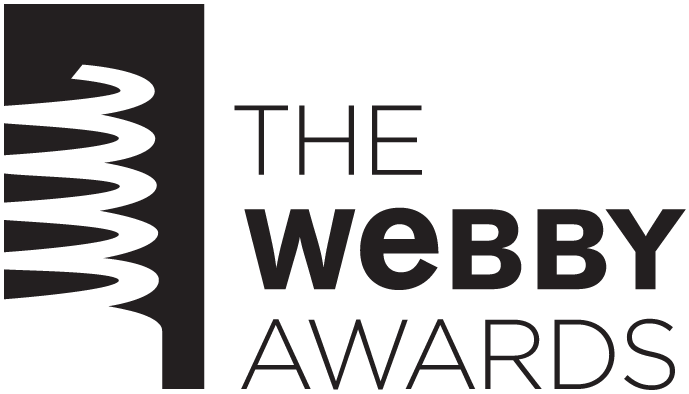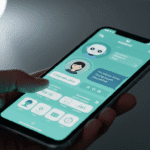
Recently, I had the great opportunity to talk with David-Michel Davies, Executive Director of the Webby Awards. For those who don’t know about the Webby Awards, (from the website):

Recently, I had the great opportunity to talk with David-Michel Davies, Executive Director of the Webby Awards. For those who don’t know about the Webby Awards, (from the website):
“The Webby Awards is the Internet’s most respected symbol of success. The 16th Annual Webby Awards received nearly 10,000 entries from all 50 states and over 60 countries worldwide. Webby Awards are awarded in over 100 categories.”
And yes, there is a category for healthcare!
In this video interview, David-Michel shares some of his top picks for healthcare websites and tells a bit about why he likes them.
And I would also like to point you in the direction of Netted by the Webbys-Better Living Through the Internet. “Netted” is a daily email, introducing you to the best sites, apps and online stuff that make life better. Many of these gems are health or fitness related, just another way to manage your overall health.
And now, listen to David-Michel’s top picks for healthcare websites:
Transcript of video (by TranscriptionStar):
Joan: Hello. I’m Joan Justice from HealthWorks Collective, and I’m here with David Michel Davies of Webby Award Fame. David is here today to tell us about some great tools on the web that can help empower patients to manage their own health. David, tell us about your star picks for web tools that are helping in the public health arena.
David: Well, thanks so much for having me. What are my star picks? One of the ones I’m very fond of is something called Symcat and it’s essentially used in a lot of places online where you can go and type in your symptoms Google being one of them obviously, and get lots of information from various sources of very incredibility as well as to what you may or may not have. Lots of you I’m sure have typed in their [Indiscernible] [0:00:59] in Google or some sorted down there in Google, and found themselves [Indiscernible] looking at services and a lot of random people telling them what they need to have, and that’s not a terrible place to start for some general information from lots of people.
But what I really love about Symcat is its whole database. And so what Symcat does is actually compile hundreds of thousands of medical records from around the country, and the type of ailments and symptoms with the people and the doctors have recorded in their doctor records, and then eventually the diagnosis of those patients and so for instance I took my [indiscernible] [0:01:36] last summer I actually I needed it seriously I had some numbness in my thumb, and probably wondering I typed in numbness in thumb numb or something like that.
And they compare that and they ask you a few other questions like old how I was, those in there little bits and basic things, and then it compared to that symptom to all the other medical records they had in its database and told me which percentage of people who have that symptom also have other diagnosis in the software. I think for that it turned out that there was like 15% was something called Fibromyalgia type I didn’t have thank god.
Joan: My goodness.
David: I think the other 15% was like stress and there were some other examples, but and so the interesting thing about is that it gives you not just — it’s not trying to guess your diagnosis based on like keywords. It’s just taking the — it’s taking the symptoms you have and comparing them to lots and lots of medical records where there has already been an outcome. It’s a very data-driven response, and it doesn’t necessarily mean that you have because of one is 15% in other words 10% that you have the 15% one, but it gives you a sense of a type of the type of diagnosis that people who had the same symptoms did have the 20% of the people had those, and so I think it’s a really nice jumping off point.
Joan: That’s cool.
David: And that gives you a lot of — it gives you a lot like I said data-driven information.
Joan: Yeah that’s great. Okay tell [Crosstalk].
David: Another one —
Joan: Yeah [Crosstalk].
David: I found out something called CureTogether. And it’s very also — it’s similar and that it’s also data- driven. But in this case it’s all about bringing data together from patients who may have the same ailment as you and it can be anything as simple as fatigue to a serious cancer. And so you go to the site you signup and you put in what you are experiencing or what your ailment is. In some case it might be a diagnosis. It might be some of you had a breast cancer or in some other cases it might be that you feel like you had chronic fatigue.
And then you put that in and then you find the other people who have had that same ailment, and those people who probably gone through answered a lot of questions about the ailment they have, and the treatments that they have for it, and whether those treatments were successful or not. So for some of you it’s a potentially just going into the beginning of something let’s say got serious or more serious and a daily and a sort of normal daily condition and like a cancer. You can go there and find other people who have that similar type of cancer.
You could find out the treatments that they had, and you can find out whether they were effective or not. And that really does a nice job of graphing and giving you all this information visually, so it’s easy to see which, were the most popular types of treatments based on the condition, and which were the most effective.
Joan: That’s really helpful, that’s great.
David: Yeah so we love that. We don’t love cancer, but we do love being able to connect people who have had some of these [indiscernible] [0:04:51] issues, and we have to sort share data information who had them. Then the other thing I would go about both of those is that in the past that was something that was entirely mediated by a doctor and you know doctors are great giving us that information, but they don’t always have the time to you know the time that we would like to spend with them, so this is a nice additional, you can spend much time as you want in these places.
The third one I like is not so much around disease or sickness, but its fitness. And its part of a guy that we did recently about how do people realize their New Years resolution and it’s called 5K Runner and a lot of people obviously one of the biggest I think the top two or three resolutions is you know getting more fit, getting more healthy, and what we found in reading through lots of blogpost and feedback from people on the internet about who succeeded or didn’t succeed with their resolutions is they often started off well, but they don’t — they were unable to sustain the resolution.
And so in this case it’s an app that just helps you get from your couch to running 5k or about 3 miles in two months, and the way it does is it takes you through a gradual and I think sort of gradually escalates. So the first day you know you put the app on and you got out listen to music and earphones on it, and just having run for a minute and then it tells you stop or walk for a minute, and run for another 30 seconds and stop and walk and stop, and so forth. And so it’s totally achievable, and you finish that first day thinking that all right I did it. I made it, and then the next day you run for 1 minute and 30 seconds and so forth.
Then eventually you are running in 5k after two months of doing that, and just really ease you into that so I think that we — what we seen is that it’s more successful because it eases people. It gives people individual success everyday then so it wraps a lot into eventually you know having a fairly fit type of life stuff, so that was through that. We really like and you know I think that people can really use sort of immediately [Indiscernible] [0:06:51] that we had serious disease, but they do think, they can use some of those and it was just the question of trying to get thin, exercise better I think a 5k Runner is the right place to start.
Joan: Yeah, I love the 5K Runner. Well, thank you so much David. I’m sure our readers appreciate learning firsthand what are some of your topics in the way of public health web tools. Thanks so much.
David: Thank you.
Links to David-Michel’s top picks for healthcare are:





